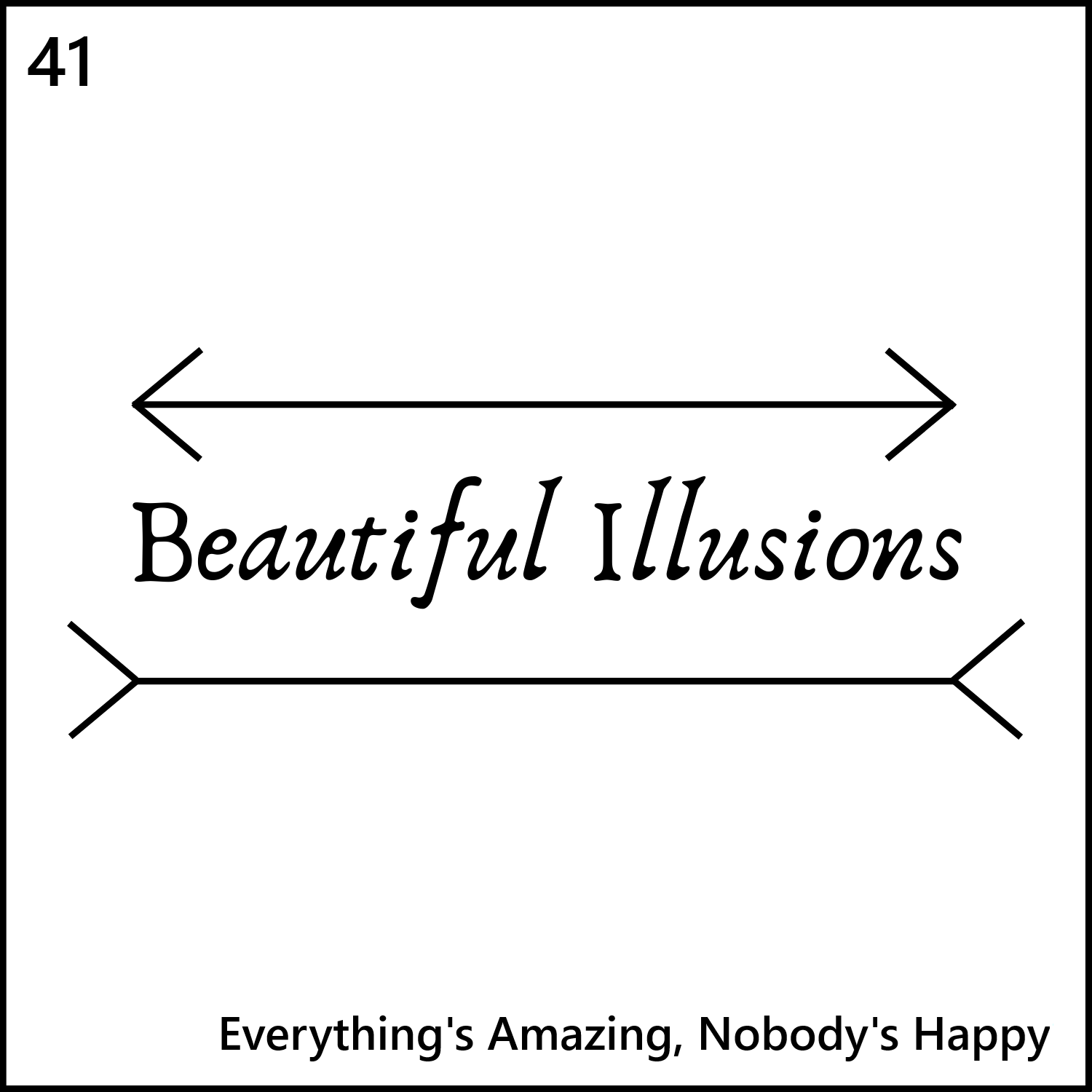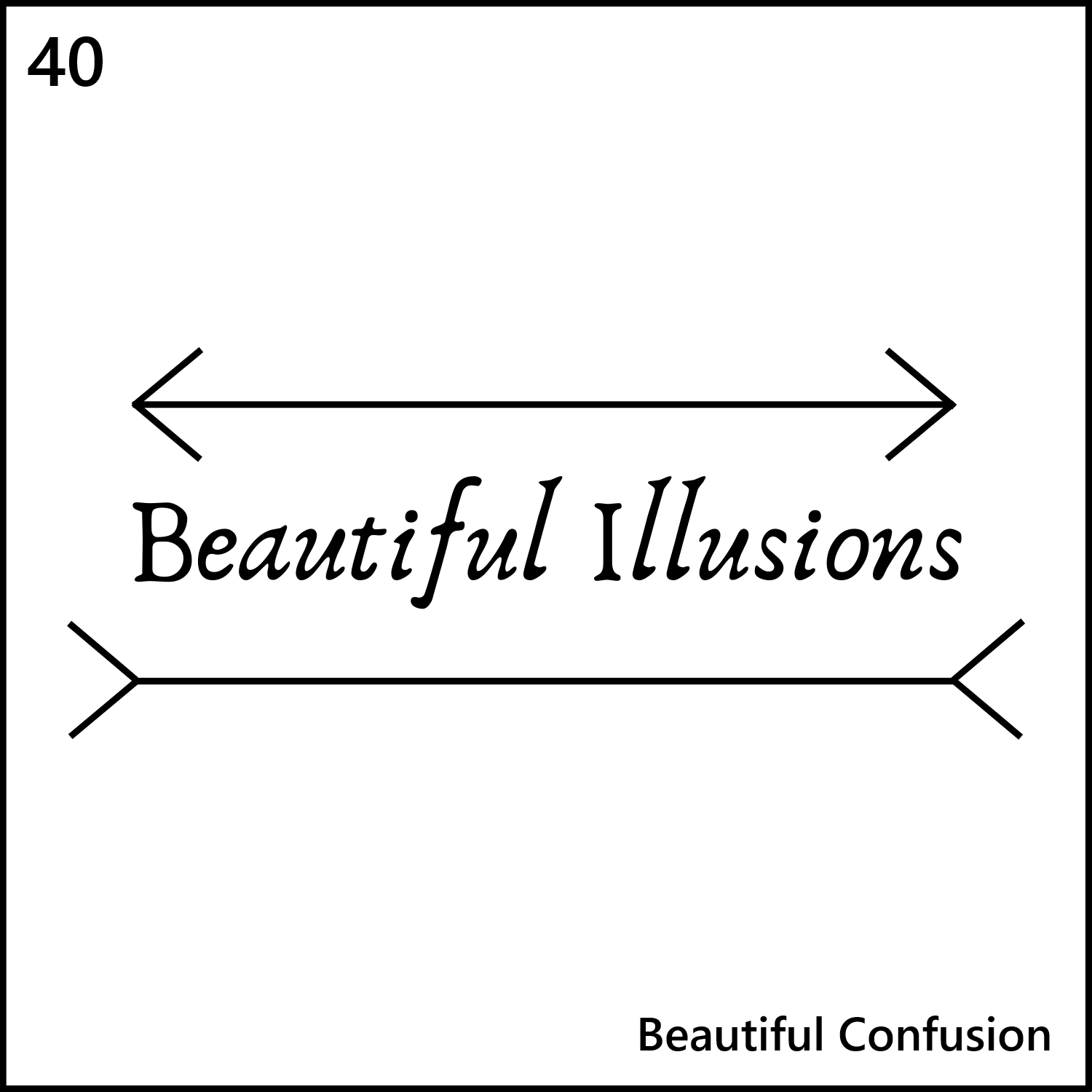Welcome to the world of Beautiful Illusions
“The pressing, human questions we have about our lives depend directly on our attitudes toward the universe at a deeper level. For many people, those attitudes are adopted rather informally from the surrounding culture, rather than arising out of rigorous personal reflection. Each new generation of people doesn’t invent the rules of living from scratch; we inherit ideas and values that have evolved over vast stretches of time. At the moment, the dominant image of the world remains one in which human life is cosmically special and significant, something more than mere matter in motion. We need to do better at reconciling how we talk about life’s meaning with what we know about the scientific image of our universe.”
It all started in a car…
We didn’t really know where we were going, and in many ways we still don’t. Two friends, Darron and Jeff, spending half of their lives consuming art, considering the big ideas of science, engaging in the philosophy of youth, and searching for meaning. Growing up, experiencing life, gaining some measure of wisdom, developing a slightly broader perspective, cultivating a more mature engagement with the world of ideas, and continuing the conversation has only lead to more questions: What is this culture we are immersed in? Where does it come from? How does it impact our ability to perceive the world? What is the dual role of art and science and do they work together or in opposition? Why do any of us, individually, think what we think, perceive what we perceive, or believe what we believe? Do the outsize influences of various fictions, arts, representations, simulations, and simulacra shape our perception so totally that we begin to move further and further from the reality that underlies existence even as science continues to reveal that reality more clearly? What potential limits does the biology of the human brain place on our ability to act reasonably and in our best interest? What even is in our “best” interest? At the cultural level can we access reality if we are irrevocably immersed in hyperreality? How can human civilizations bring our culture into a more enlightened place that honors both our need to create art and seek meaning, with the reality of the world as it is uncovered by the scientific process? Given our nature is progression to a global human society truly possible? What, ultimately, will be the fate of human culture and civilization…?
None of us see the world as it is. None of us have the same experiences or genetic makeup influencing our perception, memory, and imagination. All of us have a brain that constructs a representation of reality that exists only in our own mind, and it is from this representation that we generate the subjective experience which we call consciousness. In other words, we are our beautiful illusions - some of which we are aware of, some of which we are not - and from these illusions everything follows.
The Beautiful Illusions project is an exploration of these questions, as both Jeff and I attempt to make meaning for ourselves, better understand the context of our current cultural moment, and imagine how this might impact possible futures for human civilization. We cannot easily escape our biology but we can learn, become more aware of how our personal versions of the world impact our lives together, and be more intentional with our choices and behaviors. As the great Kurt Vonnegut once wrote, “we are what we pretend to be, so we must be very careful about what we pretend to be.”
-Darron
“The media represents a world that is more real than reality that we can experience. People lose the ability to distinguish between reality and fantasy. They also begin to engage with the fantasy without realizing what it really is. They seek happiness and fulfillment through the simulacra of reality, e.g. media and avoid the contact/interaction with the real world...
...And so art is everywhere, since artifice is at the very heart of reality. And so art is dead, not only because its critical transcendence is gone, but because reality itself, entirely impregnated by an aesthetic which is inseparable from its own structure, has been confused with its own image. Reality no longer has the time to take on the appearance of reality. It no longer even surpasses fiction: it captures every dream even before it takes on the appearance of a dream...
...Today abstraction is no longer that of the map, the double, the mirror, or the concept. Simulation is no longer that of a territory, a referential being, or a substance. It is the generation by models of a real without origin or reality: a hyperreal.”




















